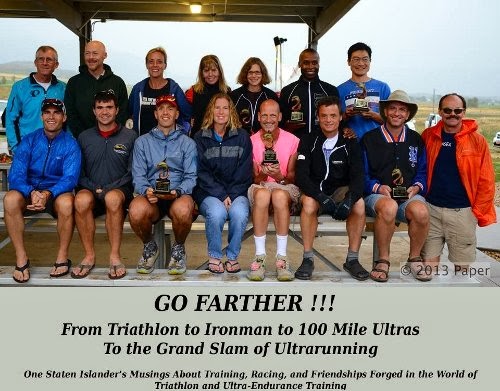It is the cerebral person that will do well in endurance races.
Well here we are, about 4 days away from the NYC Marathon, and a lot of people are starting to get a bit nervous. I definitely understand. "What will happen to me in this race?" is a good question that comes to mind. Also, "what should be a good starting pace?", and "am I going to die?" are other questions.
The best strategy is pretty simple. Start off with a fast but safe pace for the first couple of miles, and then decide on whether to keep that pace, go faster, or go slower from there.
Wait, that's it? Nothing elaborate about "going at a certain pace for the first half, then going 10 seconds per mile for the next 5 miles, and then at mile 20, I'll pop in a few gels and go another 10 seconds per mile faster, and then at mile 25, I'll sprint to the finish?"
Nope. Let me tell you this one thing. Any plan with that much detail will fail 99% of the time. Trust me. It's never worked for me in my early days and I was forced to make some decisions on the fly just to save my races from utter destruction.
Keep it simple. Decide on a fast pace for the first 2 miles, but keep it on the safe side. Those first two miles will tell you how much energy you initially have in your race. By mile 2, you can definitely make an "on the fly" decision whether to keep your pace or change it faster or slower. At that point you will have received critical information from your body that you wouldn't have gotten right at the start.
A marathon is a pretty long distance for a lot of people. For you, you'll need to make A LOT of decisions from mile 2 all the way till mile 26. That means you'll have to stay alert and stay in tune with your body so that you are alerted when something changes along the way. A quick adjustment to your pace or your nutrition will be critical in deciding whether you have a great race or a mediocre one.
But by keeping your initial plan simple, you allow a lot of flexibility into your strategy, and you're basing the strategy on what energy you have at each moment of your race. Keeping your mind alert and in tune with your body is the winning formula for PRs and BQs in a marathon.
You'll need to think about your nutrition as well as your pacing during the race too. And again, you'll go about it the same way as you do with pace; you'll come prepared with foods that worked well in your training; this is the food you'll initially go with in the beginning stages of the race.
Although you mean well with nutrition, be prepared for the eventuality that a) it might not work right at the start, or b) it will work for a good portion of the race, but will not work in the later portion of the pace. This happens a lot! In either case, don't keep to the plan. You'll need to partake in what the aid stations give you the rest of the way. Again, you'll need to think about what you might need at the aid station to get you through to the end, or just that specific stretch of the race.
Again, you'll need to keep your mind engaged and in tune with your body! In other words, DON'T ZONE OUT! Don't "go on autopilot", "daydream, "sleepwalk", or whatever people call it. Stay alert, stay focused, and more often than not you'll think your way to a very good race.
It's the cerebral way of doing your race, and most often, it is a winning strategy.
Note: I'll be in Brooklyn cheering people on in the NYC Marathon (around miles 11-14), and will try to make it to Central Park to see some friends finish. If you're in this race, let me know and I'll place you in my tracker. If it's not raining I'll be in a black "cowboy" hat (more accurately an Aussie hat) along the course.
Good luck!!!



